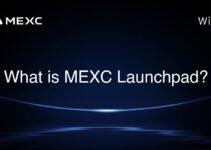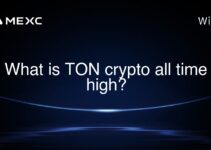As of 2025, Sierra Leone does not impose specific taxes on cryptocurrency transactions. However, general tax principles applicable to property and income may affect crypto assets, depending on their use and the nature of the transaction.
Importance of Understanding Crypto Taxation in Sierra Leone
For investors, traders, and users of cryptocurrencies in Sierra Leone, understanding the tax implications is crucial for several reasons. Firstly, it helps in legal compliance, ensuring that all potential tax liabilities are met. Secondly, it aids in financial planning, allowing individuals and businesses to forecast their tax obligations accurately. Lastly, understanding the tax environment can influence investment decisions, particularly in a rapidly evolving market like cryptocurrencies.
Real-World Examples and Updated 2025 Insights
In the absence of specific cryptocurrency tax laws in Sierra Leone, the treatment of digital assets can be inferred from general tax rules. Here are several practical scenarios:
Capital Gains from Crypto Assets
If a resident of Sierra Leone buys and later sells cryptocurrency at a profit, the gains may be subject to capital gains tax under the general tax principles. This is similar to gains made from other types of property. For instance, if an investor purchased Bitcoin in 2023 and sold it in 2025 at a higher price, the profit realized from this transaction could potentially be taxable.
Income from Mining and Staking
Cryptocurrency mining and staking can generate new coins, which might be considered a form of income. In Sierra Leone, income generated through such activities could be subject to income tax. For example, if a person engages in Ethereum mining and receives Ether as a reward, this reward could be seen as taxable income.
Use of Crypto for Goods and Services
When cryptocurrency is used to purchase goods or services in Sierra Leone, this transaction might be treated like any other barter transaction. The value of the cryptocurrency at the time of the transaction could be considered for VAT (Value Added Tax) purposes, depending on the nature of the good or service and existing VAT laws.
Data and Statistics
While specific data on cryptocurrency transactions in Sierra Leone is limited, global trends provide context. According to the Global Crypto Adoption Index 2024, West Africa has seen a significant increase in cryptocurrency usage, primarily due to its utility in remittances and trade. Sierra Leone, while not at the forefront, is gradually embracing digital currencies, which underscores the importance of understanding potential tax implications.
Conclusion and Key Takeaways
As of 2025, Sierra Leone has not enacted specific legislation targeting the taxation of cryptocurrencies. However, general tax laws that apply to property and income are relevant to transactions involving digital assets. Investors and users must consider potential capital gains tax, income tax on mining or staking rewards, and VAT implications for transactions using cryptocurrencies. As the global landscape of cryptocurrency continues to evolve, it is advisable for those involved in crypto transactions in Sierra Leone to stay informed about potential legal changes that could affect their tax obligations.
Key takeaways include the absence of specific crypto tax laws in Sierra Leone, the applicability of general tax principles to crypto assets, and the importance of legal compliance and financial planning for crypto users in the region. Staying updated with the latest developments in tax legislation will be crucial for anyone engaged in the cryptocurrency market in Sierra Leone.



